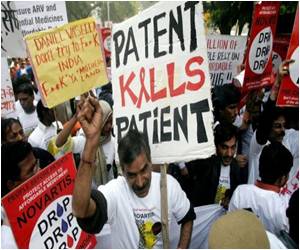via the Commission on HIV and the Law
 The end of the global AIDS epidemic is within our reach. This will only be possible if science and action are accompanied by a tangible commitment to respecting human dignity and ending injustice.
The end of the global AIDS epidemic is within our reach. This will only be possible if science and action are accompanied by a tangible commitment to respecting human dignity and ending injustice.
Law prohibits or permits specific behaviours, and in so doing, it shapes politics, economics and society. The law can be a human good that makes a material diff erence in people’s lives. It is therefore not surprising that law has the power to bridge the gap between vulnerability and resilience to HIV.
We came together as a group of individuals from diverse backgrounds, experiences and continents to examine the role of the law in effective HIV responses. What we share is our abiding commitment to public health and social justice. We have listened with humility to hundreds of accounts describing the eff ects of law on HIV. In many instances, we have been overwhelmed by how archaic, insensitive laws are violating human rights, challenging rational public health responses and eroding social fabric. At other times, we have been moved by those who demonstrate courage and conviction to protect those most vulnerable in
our societies.
Many would say that the law can be complex and challenging and is best left alone. Our experience during this Commission has shown us a very diff erent perspective. We have been encouraged by how frank and constructive dialogue on controversial issues can sometimes quickly lead to progressive law reform, the eff ective defence of legislation or better enforcement of existing laws. Even in environments where formal legal change is a slow and arduous process, we have witnessed countries taking action to strengthen access to justice and challenge stigma and discrimination.
Click here for the full report.
-------------------
*Join IRMA's robust, highly-active. moderated, global listserv addressing rectal microbicide research and advocacy as well as other interesting new HIV prevention technologies by contacting us at rectalmicro@gmail.com. Joining our listserv automatically makes you a member of IRMA - a network of more than 1,100 advocates, scientists, policy makers and funders from all over the world.
*Please look for us on Facebook: www.facebook.com/InternationalRectalMicrobicideAdvocates, and you can follow us on Twitter: @rectalmicro.
*Also, please note that shared news items from other sources posted on this blog do not necessarily mean IRMA has taken any position on the article's content.
-------------------
 The end of the global AIDS epidemic is within our reach. This will only be possible if science and action are accompanied by a tangible commitment to respecting human dignity and ending injustice.
The end of the global AIDS epidemic is within our reach. This will only be possible if science and action are accompanied by a tangible commitment to respecting human dignity and ending injustice.Law prohibits or permits specific behaviours, and in so doing, it shapes politics, economics and society. The law can be a human good that makes a material diff erence in people’s lives. It is therefore not surprising that law has the power to bridge the gap between vulnerability and resilience to HIV.
We came together as a group of individuals from diverse backgrounds, experiences and continents to examine the role of the law in effective HIV responses. What we share is our abiding commitment to public health and social justice. We have listened with humility to hundreds of accounts describing the eff ects of law on HIV. In many instances, we have been overwhelmed by how archaic, insensitive laws are violating human rights, challenging rational public health responses and eroding social fabric. At other times, we have been moved by those who demonstrate courage and conviction to protect those most vulnerable in
our societies.
Many would say that the law can be complex and challenging and is best left alone. Our experience during this Commission has shown us a very diff erent perspective. We have been encouraged by how frank and constructive dialogue on controversial issues can sometimes quickly lead to progressive law reform, the eff ective defence of legislation or better enforcement of existing laws. Even in environments where formal legal change is a slow and arduous process, we have witnessed countries taking action to strengthen access to justice and challenge stigma and discrimination.
Click here for the full report.
-------------------
*Join IRMA's robust, highly-active. moderated, global listserv addressing rectal microbicide research and advocacy as well as other interesting new HIV prevention technologies by contacting us at rectalmicro@gmail.com. Joining our listserv automatically makes you a member of IRMA - a network of more than 1,100 advocates, scientists, policy makers and funders from all over the world.
*Please look for us on Facebook: www.facebook.com/InternationalRectalMicrobicideAdvocates, and you can follow us on Twitter: @rectalmicro.
*Also, please note that shared news items from other sources posted on this blog do not necessarily mean IRMA has taken any position on the article's content.
-------------------





